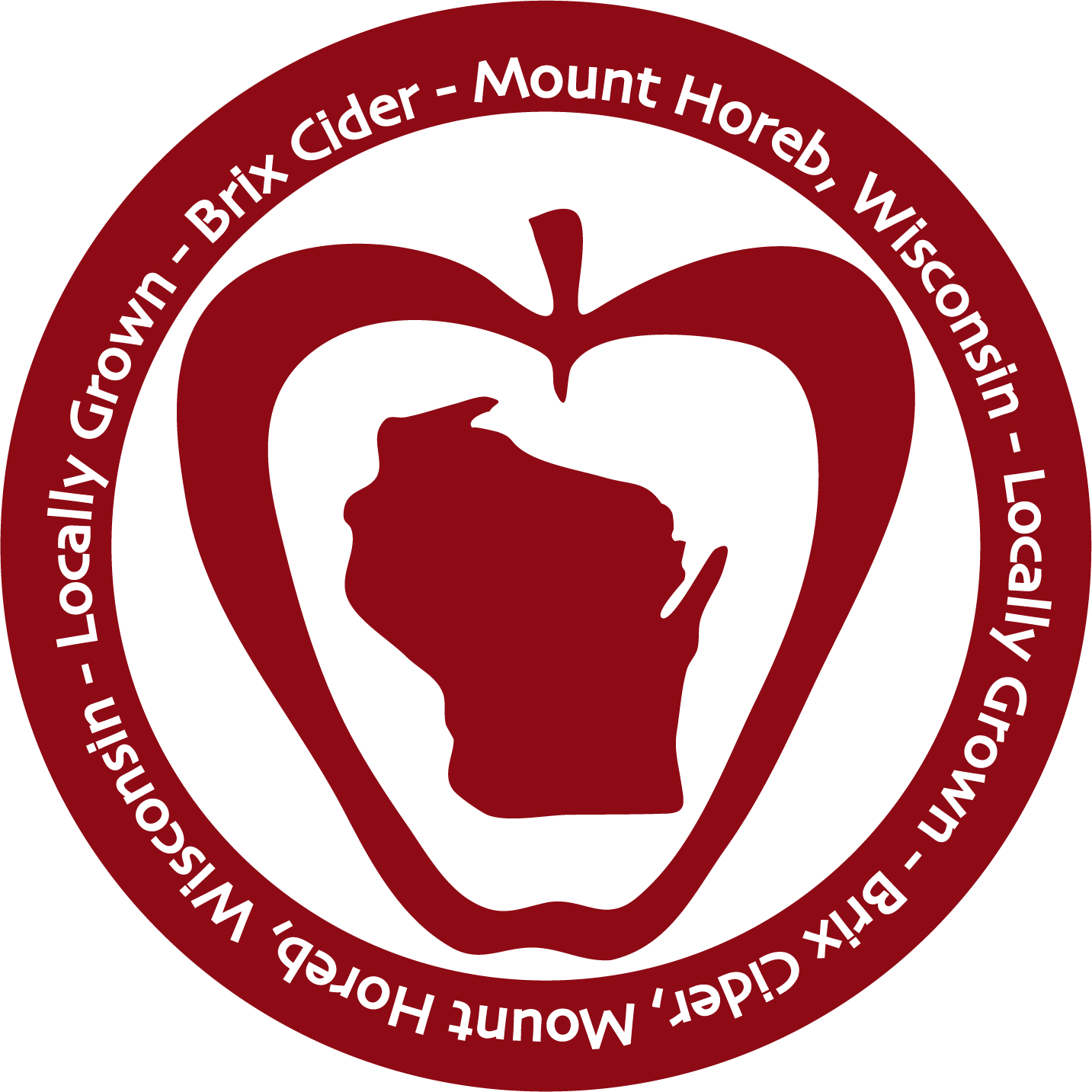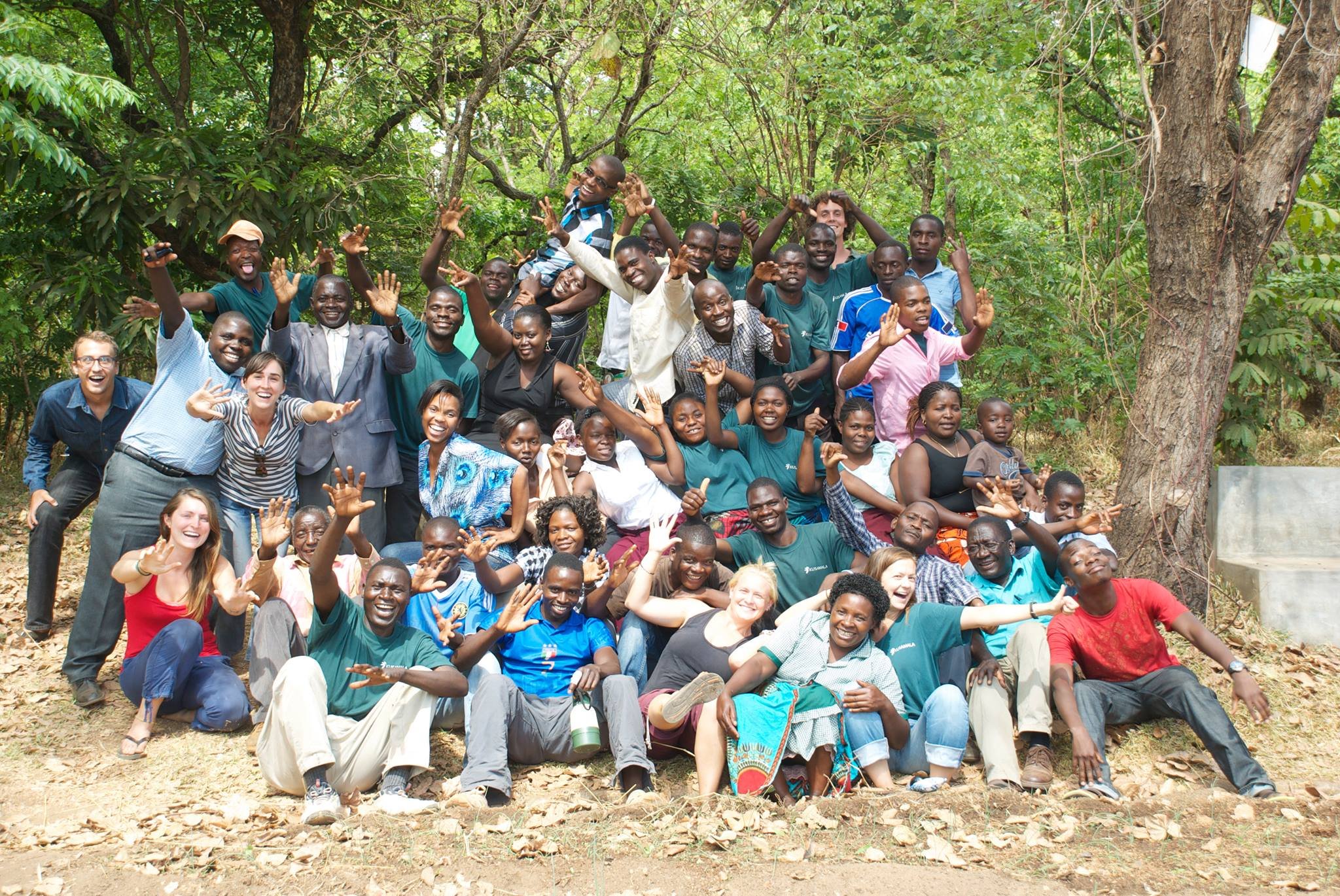Interview series: JULES ON WHERE ACADEMIA MEETS GRASSROOTS
The BRIX PROJECT interview series is a collection of conversations with the leaders of this three-year USDA-funded grant project.
The BRIX PROJECT project shines a light on the power that partnerships between farms and restaurants have to shape the local economy. Brix is working with UW Madison for food sourcing analysis and outreach that can be implemented in other microregions striving for shorter supply chains.
Jonnah: Brix Project Media Producer
I know that you have a really unique, pre-existing relationship with Brix Cider prior to this project. Can you share a brief history of how you got involved with Matt and Marie?
Jules:
I'm glad you asked because it's such a good story. I met Matt and Marie in Malawi in 2013. I was volunteering at an agroecology nonprofit organization where Marie worked that did agroecology programming for farmers in rural Malawi. Matt was there working for USAID [The US Agency for International Development]. We were in a very small community of volunteers and expats. Matt and Marie were the people who were like: Come on over our house! We'll cook everyone dinner and we'll make everyone these drinks made from all these local fruits we're experimenting with! It was a really cool friendship to have.
At that point, they had graduated from the Master’s program in Agroecology at UW. I was in the preliminary stages of thinking about what I wanted to do after Malawi, and I remember talking to them about this program and thinking it sounded really cool. A couple years later, when I started to apply to graduate school, the Agroecology program was at the top of my list. So in some ways, they were the ones that introduced me to my graduate school path.
“We were in a very small community of volunteers and expats. Matt and Marie were the people who were like: Come on over our house! We’ll cook everyone dinner and we’ll make everyone these drinks made from all these local fruits we’re experimenting with! It was a really cool friendship to have.”
Jules (bottom left) and Marie (bottom center) with a group from the Kusamala Institute for Agriculture and Ecology in Lilongwe, Malawi circa 2013.
About a year after Matt and Marie opened Brix Cider, they were looking for some extra workers, so I started picking up a shift here and there. It became something that I loved doing. It was an outlet for me not related to Madison and the university and I looked forward to going to Brix every week.
Jonnah
That's such a good story. To have met, like in Africa and then here you are, all these years later. You're a PhD candidate. What is the focus of your work and how does it tie into the Brix Project?
Jules
I am pursuing a joint PhD in Geography and Environmental Studies. The beautiful thing about this joint degree is that it's so open and interdisciplinary. And I've always been interested in food and agriculture. The Master’s degree in Agroecology gave me an interdisciplinary grounding in agronomy, soil science, and some of these different agricultural sciences. But I really love thinking about food systems and the people who are operating within those systems. I wanted to go on to study and work with people like Matt and Marie. All of this has led me to the PhD.
“I was looking for projects where I could apply research into food systems and food activism closer to home, and that’s when Matt and Marie approached me about this project. It was kind of like the perfect missing puzzle piece for me. So I’m super excited that I get to do much more community-engaged work in Dane County.”
For a long time, I actually thought that I wanted to do more internationally- focused work because of my experience in Malawi. But after wading into those waters, I figured out that it actually felt a lot more important to me to be doing this work closer to home. So I was looking for projects where I could apply research into food systems and food activism closer to home, and that's when Matt and Marie approached me about this project. It was kind of like the perfect missing puzzle piece for me. So I'm super excited that I get to do much more community-engaged work in Dane County.
Jonnah
Since you have this overhead view of regionalized food systems in Wisconsin, what do you see as being actionable change that we need in southern Wisconsin? What are some of the takeaways that you've gleaned from your work within the University that you feel could improve the system that we're operating in?
Jules
Really good question. That's essentially my dissertation question.
Jonnah
And maybe the answer is you don't have it yet. But how are you approaching it?
Jules
It is a huge question. I would not say that this far into the project, or my dissertation, I have any sort of an intelligent answer. But I do think that something that all of us involved in the project would agree on is bringing in more voices, which sounds cliche, but bringing more people into these conversations is so valuable. That's something that I hope that we're doing by focusing on the community side of things. Whereas some other projects might focus maybe the production side or the market side of the food system, this project really focuses on who has been involved to try to increase that regionalized reach. And in terms of the evaluation piece, a really exciting part of this project is the partnership with the University. Being able to see what changes are actually being made. Taking that thousand-foot step back and asking Where did we start? And where are we going? And, how is it going? And what's the data that backs all of this up? This project is laying the groundwork for some really important long term change to happen.
“The human anecdotes along with the framework of the data is so powerful. We all get so bogged down in our perception of the issues. To actually have data pointing back to solutions that are supported by storytelling is incredible.”
Jonnah
The human anecdotes along with the framework of the data is so powerful. We all get so bogged down in our perception of the issues. To actually have data pointing back to solutions that are supported by storytelling is incredible.
So the Crash the Kitchen events. One of your main roles within the Brix Project is outreach, events and community engagement. And the Crash the Kitchen just kind of came out of nowhere. And it's been such a huge success. I'm wondering what you think that says about the greater Madison community and what they want right now.
Jules
I'm conducting surveys to get feedback from people about these dinners. And over and over again, people are writing that they love the community feel of Crash the Kitchen, and they love being able to come together to support local food and local chefs. I also think that there's something to be said about the fact that Brix is not trying to be in competition with other chefs or food producers, but that these events are highlighting the beautiful partnerships that are ultimately strengthening our local food economy.
Jules at the first Crash the Kitchen dinner featuring Giant Jones Brewery.
Jonnah
We've talked about how your work within academia is adding value to regional food systems, and Brix in particular. What do you feel that you can do that you're taking from this work within the Brix Project that you're bringing back into academia?
Jules
I love this question. Thanks for asking it, I think there's a couple things that come to mind. The first one is just the power of doing such grounded community-engaged research. One of my biggest critiques about academia is that you have these, like, very smart, capable people with all of the tools and power provided by the university that kind of stay in that academic bubble - though that does happen less and less these days. But this work is so powerful because it's not just coming from me and it's not just coming from only Matt or only you, or Marie. It’s really the product of this community and that feels really important. I'm so excited to bring this body of work back to university and share it as a model of how the university can be more embedded in its place and do work that really supports and elevates the community.
“One of my hopes is to help develop a framework for actually being able to identify and understand what’s happening on the ground, like with grassroots organizations and local businesses like Brix. ”
The other thing that I'm really excited for, is this idea that we are measuring and trying to evaluate change. And I don't mean to make that reductive at all. We’re creating a framework and a model for understanding what kinds of changes are occurring through our work with The Brix Project. We're in a period where there's so much happening, and so much movement around making positive change for resilience and for justice. One of my hopes is to help develop a framework for actually being able to identify and understand what’s happening on the ground, like with grassroots organizations and local businesses like Brix. This framework can be passed on to other researchers and other people who also want to make resilience and just change in their community.




